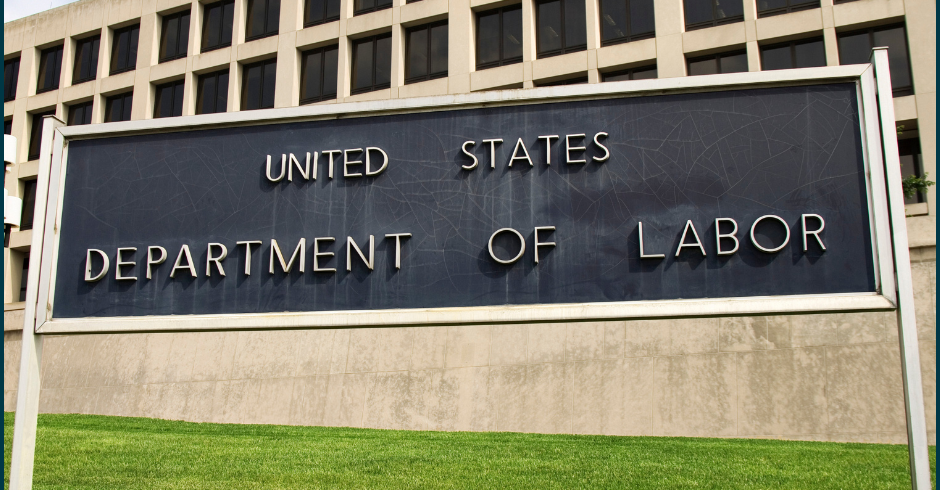On March 23, 2021, Illinois Governor J.B. Pritzker signed into law Senate Bill 1480, which amends the Illinois Human Rights Act, the Illinois Equal Pay Act, and the Illinois Business Corporation Act. SB 1480, which became law immediately, sets forth various new requirements on employers that will require careful consideration and implementation.
1. Employers Are Severely Limited in Denying Employment or Other Benefits Based on Criminal Convictions
SB 1480’s most sweeping changes are to the Illinois Human Rights Act (“IHRA”), which places new limitations on an employer’s ability to consider criminal records when making hiring and employment decisions. A “conviction record” is defined as any information indicating that a person has been convicted of a felony, misdemeanor or other criminal offense, placed on probation, fined, imprisoned, or paroled pursuant to any law enforcement or military authority.
Unless otherwise provided by law, such as for positions where individuals are licensed under the Emergency Medical Services (EMS) Systems Act, an employer using a conviction record “as a basis to refuse to hire, to segregate, or to act with respect to recruitment, hiring, promotion, renewal of employment, selection for training or apprenticeship, discharge, discipline, tenure or terms, privileges or conditions of employment” runs the risk of committing a civil rights violation unless one of two exceptions apply:
- There is a substantial relationship between one or more of the previous criminal offenses and the employment sought or held; or
- The granting or continuation of the employment would involve an unreasonable risk to property or to the safety or welfare of the general public.
For the first exception, a “substantial relationship” means a consideration of whether the position offers the opportunity for the same or a similar offense to occur and whether the circumstances leading to the prior conduct will recur in the employment position. SB 1480 sets forth six factors to be considered in determining whether one of the exceptions applies:
- The length of time since the conviction;
- The number of convictions;
- The nature and severity of the conviction and its relationship to the safety and security of others;
- The facts or circumstances surrounding the conviction;
- The age of the employee at the time of the conviction; and
- Evidence of rehabilitation efforts.
There is little if any guidance at this time explaining how employers should apply these factors.
The Interactive Assessment
After considering the factors above, an employer may make a preliminary decision that a conviction disqualifies an employee, but then must engage in an “interactive assessment,” similar to the federal Fair Credit Reporting Act’s pre-adverse action process. This interactive assessment requires an employer to first notify the employee of the employer’s preliminary decision in writing, which must include the following:
- A notice of the disqualifying conviction(s) and the employer’s reasoning for the disqualification;
- A copy of the conviction history report; and
- An explanation of the employee’s right to respond to the notice of the employer’s preliminary decision before it is finalized. This explanation shall inform the employee that the response may include, but is not limited to, submission of evidence challenging the accuracy of the conviction record that is the basis of the disqualification, or evidence in mitigation, such as rehabilitation.
The employee has five business days to respond before the employer can make a final decision. If the employer decides not to hire or take any adverse action because of the employee’s conviction, then the employer must notify the employee in writing of the following:
- Notice of the disqualifying conviction along with the employer’s reasoning;
- Any existing procedure the employer has for the person to request reconsideration or challenge the decision; and
- Notice of the right to file a charge with the Illinois Department of Human Rights.
An employer who fails to comply with these new provisions and is found to have unlawfully discriminated on the basis of a conviction record may be subject to a cease-and-desist order; actual damages to compensate for loss or injury; hiring, reinstatement, or promotion with backpay and fringe benefits; and compensating the injured party for attorney’s fees and costs.
Additional information is available at: https://www2.illinois.gov/dhr/Pages/Conviction_Record_Protection_Frequently_Asked_Questions.aspx
2. Many Employers Must Apply for An Equal Pay Registration Certificate Requirement
SB 1480 further requires private employers with more than 100 employees to pay a $150 application fee to obtain an “equal pay registration certificate” from the Illinois Department of Labor. This document certifies:
- “that the business is in compliance with Title VII of the Civil Rights Act of 1964, the Equal Pay Act of 1963, the Illinois Human Rights Act, the Equal Wage Act, and the Equal Pay Act of 2003”;
- “that the average compensation for its female and minority employees is not consistently below the average compensation, … taking into account length of service, requirements of specific jobs, experience, skill, effort, responsibility, working conditions of the job”;
- “that the business does not restrict employees of one sex to certain jobs and makes retention and promotion decisions without regard to sex”;
- “that wage and benefit disparities are corrected when identified to ensure compliance” with the above-mentioned employment laws; and
- “how often wages and benefits are evaluated to ensure compliance with” applicable employment laws.
Covered employers are required to file for this application within the next three years and be recertified every two years thereafter. The Illinois Department of Labor may issue a civil penalty totaling up to one percent of an employer’s gross profits to employers who have failed to obtain an equal pay certificate by March 23, 2024.
3. New Whistleblower Protections
SB 1480 also includes broad whistleblower protections. Employers are prohibited from taking any “retaliatory actions” (including reprimand, discharge, suspension, demotion, denial of promotion or transfer, or change in the terms and conditions of employment) against employees who:
- Disclose or threaten to disclose to a supervisor or a public body an activity, inaction, policy, or practice implemented by a business that the employee reasonably believes is in violation of a law, rule, or regulation;
- Provides information to or testifies before any public body conducting an investigation, hearing, or inquiry into any violation of a law, rule, or regulation; or
- Assists or participates in a proceeding to enforce the provisions of the Illinois Equal Pay Act.
Remedies for employees whose employers violate these whistleblower protections include reinstatement, two times the amount of backpay, interest on backpay, reinstatement of full fringe benefits and seniority rights, and payment of reasonable costs and attorney’s fees.
4. New EEO Reporting Requirements
Finally, SB 1480 requires that employers already required to file an EEO-1 report with the federal Employment Opportunity Commission also provide substantially the same information (including gender, race, ethnicity, and wage information) with the Illinois Department of Labor. A form for complying with this requirement should be forthcoming from the Illinois Secretary of State.
Because SB 1480 was effective immediately upon Governor Pritzker’s signature on March 23, employers should review and update their current policies to ensure compliance. For additional information on this or any related topic, please contact any of the KDDK labor and employment law professionals.
This article was written by:

ngolding@KDDK.com

mmcanulty@KDDK.com






